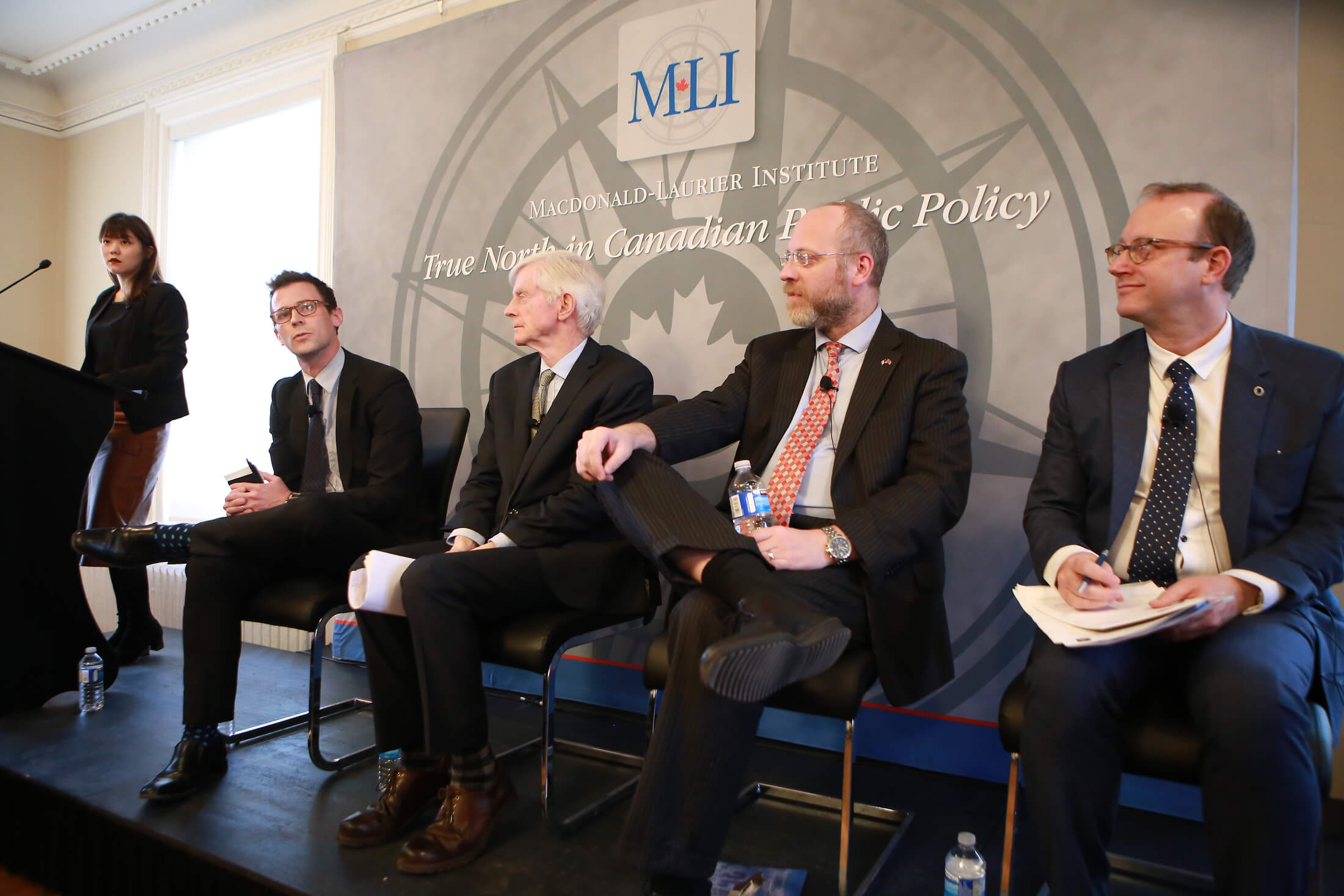With 2019 marking the forty-year anniversary of the Taiwan Relations Act, and Canada’s increasing interest in cross-strait issues, the Macdonald-Laurier Institute in Ottawa hosted the panel called Embracing Taiwan: Canada Has More Options Than We Realize, on April 16, 2019. The panel was made up of J. Michael Cole, Scott Simon, Jonathan Berkshire Miller and David Kilgour – all Canadian experts on Taiwan and Asia-Pacific regions. The purpose of the event was to discuss future possibilities of Canada-Taiwan relations regarding official policies as well as informal ties.
As a Taiwanese person and new resident of Canada, I was honoured to participate in this panel as its moderator and found myself deeply interested in the panelists’ and audience’s interest in the political status and national security of my island country.
The people of Taiwan have long felt like we are isolated from the rest of the world in terms of international relations and collaboration: while a functioning democracy since 1987, the government of Taiwan is only recognized officially by seventeen countries in the world and has been barred from participating in intergovernmental organizations such as the United Nations and World Health Organization. It has therefore become vital that Taiwan retains any possible platform to assert its presence and exist as a self-ruled state and member of the international community. Since the 1990s, Taiwanese society oversaw a series of social reforms concerning its Indigenous people and gender issues that allowed our development into a progressive and liberal country. In the end, it was also these merits that have earned Taiwan the respect and solidarity of other democratic governments, Canada being one of the many.

Though organized and examined from a Canadian perspective, the panel held the presence and concerns of Taiwan and Taiwanese people to the highest regard. Considering the recent turbulent interactions between Canada and the People’s Republic of China (PRC), panelists co-chair of University of Ottawa Taiwan Studies Scott Simon and Taiwan Sentinel Editor-in-Chief J. Michael Cole urged for the Canadian government’s shift of focus from economic benefits to democratic values and human right issues when dealing with the Chinese government, and thus to explore a renewed relationship with Taiwan. Nobel Peace Prize nominee, former MP and Secretary of State David Kilgour additionally praised Taiwan as a model for all democratic societies, and said that with both countries sharing similar social values, Canada must recognize the importance of its stance when determining future policies regarding cross-strait disputes.
Commenting on regional security, distinguished fellow at the Asia-Pacific Foundation of Canada Jonathan Berkshire Miller moreover emphasized the strategic significance of Taiwan and its connection to Canada’s own position in the Asia-Pacific region. Repeatedly, the panelists highlighted how Canada would profit from a more solidified relationship with Taiwan in light of the dimming international reputation of China, which is much-needed advocacy for Taiwan when confronting the rising hostility from Beijing.
Concerning current affairs, the panel also remarked in the latest diplomatic trip of Taiwanese President Tsai Ing-Wen to South Pacific countries Palau, Nauru and the Marshall islands, as well as the upcoming Taiwanese election in 2020. President Tsai’s visit sparked an interesting diplomatic resolution proposed by Nauru, an ally of Taiwan, that has sought bilateral relations with both China and Taiwan, which, if feasible, would emerge to be the answer to the perpetual cross-strait dilemma. In order to be a trustworthy partner in democracy, the panelists suggested that the Canadian government should cooperate with any candidate elected by the people of Taiwan, regardless of party endorsement and ideological preferences.
On the other hand, however, we as voters of Taiwan should be reminded that the reasons behind any international alliance – formal or informal – are substantially based in the contemporary democratic and liberal values we share. While international audiences, Canada included, might choose not to base such an alliance on any election result, the people of Taiwan are fundamentally responsible for appointing an administration ourselves that would benefit us the most as both a civil society and member of the international community.
In retrospect, the panel was not simply a forum to advise Canadian officials about future policy-making, but an assurance for all democracies in the world. The international position on the issue between China and Taiwan can therefore be indicative of how the world moves forward when facing similar challenges to our shared beliefs of liberty, democracy and human rights. The matter of Taiwan is not one to be easily resolved; however, we must not overlook the ongoing strength that Taiwan continues to demonstrate with the help of countless journalists, activists and advocates. As noted by Winston Wen-yi Chen, Taiwan’s official representative to Canada in his opening speech at this panel, “My country is at the front line of a battle being fought for freedom and democracy.” Ultimately, it is never courage or perseverance that Taiwan needs to continue the fight, but allies and international support from a wider community.
Originally from Kaohsiung, Taiwan, Ashley Deng-Yu Chen was a Rotary exchange student in Slovakia and holds a Bachelor's degree from National Cheng Kung University in Foreign Languages and Literature Department, with a year of study abroad completed at SOAS, University of London sponsored by the Academia Sinica of Taiwan. She now resides in Canada as a graduate student of anthropology at University of Ottawa. Proficient in Mandarin, English, Spanish and Slovak, she is interested in issues related to identity studies, the anthropological aspect of political life, and the advocacy of Taiwan in international context.




